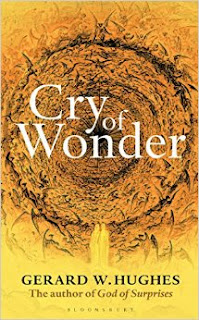When I was younger and more prone to
melancholy I viewed older age with dread, as a grey tail-end of life when you
sat in death’s waiting room wondering when your name would be called.
Well, it was my 63rd birthday
the other day. I’m growing older myself now, and I’m hugely more positive at
the prospect.
 |
| John Dempster on the Ness Islands |
In recent years, I have learned to
accept that I will die, that I am not here forever. On the days when I remember
this, I am set free to value the preciousness of each day, each moment, each
human contact.
More recently I’ve been learning
something new – that older life holds great possibilities. Harriet Mowat, a
Highland-based researcher into old age shows in her work the necessity of
holding in creative tension both our sense of mortality, and a commitment to
live as though life were endless. Aging invites us on a spiritual journey of
self-discovery.
I’ve resolved to do this growing old
thing as well as I can. Looking back at life’s earlier stages, I realise I didn’t
prepare for any of them thoughtfully and intentionally. In consequence I messed
up. (But perhaps it’s the end result that counts, not the messiness of the
process.)
As a teenager, I struggled with
melancholy, and with a related sense of being forever on the outside in the
faith community. As young man I wrestled with sadness and anxiety, learning to
call these by name, to ‘own’ them; beginning to discern who I am, to accept
myself and be myself.
In middle age, I began the journey of marriage
and fatherhood. I was able to examine the beliefs I’d received from others,
discovering what I truly believe, and living out of those personal convictions.
And there was another journey, from jobs where I didn’t feel totally at home to
a post which is just right for me; one for which I am just right.
None of this journeying was reflected on
or thought through in advance. I simply took the next step, at times in great
uncertainty. I am gobsmacked to consider how blessed I have been by God. I am
fortunate, and I know it.
But now, for the first time, I am
thinking in advance about the stage of life looming ahead – or rather the
series of stages which older life brings. So what does ‘aging well’ look like,
as we hold in tension mortality and opportunity, denying neither the physical
and mental diminishment which old age can bring, nor the possibility it offers?
In the days ahead, I will seek to be
more still and reflective, holding more closely to the God I believe has held
me through many days when God has seemed distant.
I will seek to face the future with
courage and hope, whatever life brings.
I will seek to become more wholly
myself, in openness to God. The life-long journey towards self-knowledge continues.
The more fully I am my unique self in partnership with God, the happier I am,
and the more I am an encouragement to others.
In his book Spirituality an Aging academic Robert Atchley talks of older people
becoming ‘elders’ and ‘sages’ in their own communities, bringing the wisdom of
years, empathy and discernment. As I move through my 60s, I bring six decades
of experience in a changing church and a changing world. I sense an increasing
confidence and joy in drawing on that experience and telling it as I see it.
Atchley mentions the tendency of
researchers to see life as ‘the hero’s journey.’ Two academics, however
(unsurprisingly women) depict life’s growth as not simply a personal journey,
but an interconnected web, a quilt sewn by many hands. And it’s true – my
growing has been dependent on the growing alongside me of many other who shared
their lives with me.
I’ve sometimes arrogantly seen life as a
drama to star in. In fact, it is a drama to share in. We need the wisdom of
others – especially of our elders and sages.
Robert Atchley notes, almost in an
aside, that older people tend to live out their values more fully. Perhaps
young people are truer to their passionately-held values than middle-aged
people in whose living there is often a mismatch between belief and practice. I
love the thought of older Christians living out their values fully, considering
materials things of lesser importance, focussing on God, reflecting God’s love
and grace. I realise that ultimately it’s not my story, or our story, but God’s
story.
We do not deny our mortality. But as
Christians we believe we will live beyond death. The specifics are far from
clear, but the conviction adds zest and confidence to the last decades of our
lives. The journey is ‘To be continued….’
(Christian Viewpoint column from the Highland News, dated 28th May 2015)







